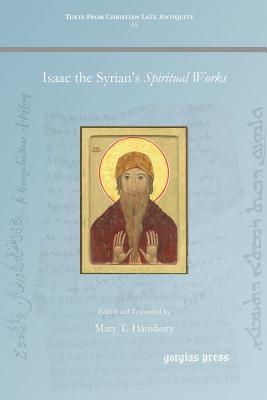Isaac the Syrian lived the solitary life in the 7th century. He was born in Qatar and subsequently lived in present day Iraq and Iran. After life as a monk, then briefly as a bishop, he withdrew to live the solitary life. These discourses are primarily for solitaries to consolidate them in the love and mercy of God. Isaac returns frequently in this work to the theme of joy as it relates to repentance and also to inebriation - even as it were, as a participation in divine Nature. In ch.5, he discusses theosis. Discussions of divinization are not that common to his writings. Already Isaac has been able to cross all kinds of boundaries, both geographical and ecclesial. Now with theosis in ch. 5 there is possibility of ongoing discussion in Asian Christianity, especially with India in relation to Advaita. In this volume, the text of Isaac V has also been included because of the light which it sheds on Apocatastasis, of increasing interest in academic and ecclesial circles. Isaac III was originally edited and translated by Sabino Chial of Bose. A French translation was subsequently done by Andre Louf.

Isaac the Syrian's Spiritual Works
Isaac the Syrian lived the solitary life in the 7th century. He was born in Qatar and subsequently lived in present day Iraq and Iran. After life as a monk, then briefly as a bishop, he withdrew to live the solitary life. These discourses are primarily for solitaries to consolidate them in the love and mercy of God. Isaac returns frequently in this work to the theme of joy as it relates to repentance and also to inebriation - even as it were, as a participation in divine Nature. In ch.5, he discusses theosis. Discussions of divinization are not that common to his writings. Already Isaac has been able to cross all kinds of boundaries, both geographical and ecclesial. Now with theosis in ch. 5 there is possibility of ongoing discussion in Asian Christianity, especially with India in relation to Advaita. In this volume, the text of Isaac V has also been included because of the light which it sheds on Apocatastasis, of increasing interest in academic and ecclesial circles. Isaac III was originally edited and translated by Sabino Chial of Bose. A French translation was subsequently done by Andre Louf.